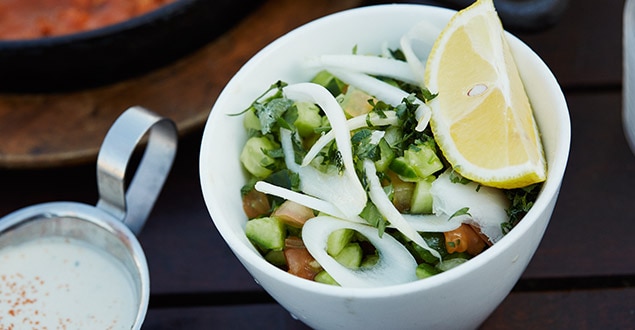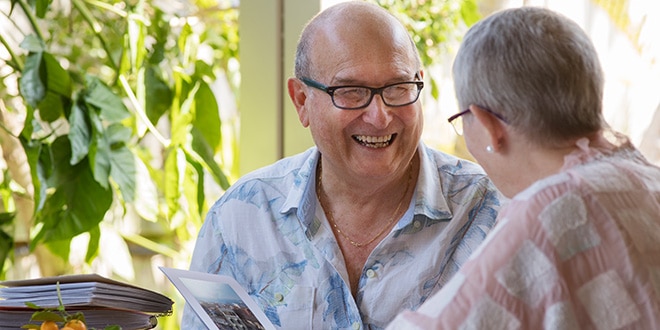Your general well-being may influence how you perceive your bladder issues. If you feel poorly, you might also feel that your bladder issues are unbearable. Eating healthy food, which gives you energy, makes your body strong and provides you with a positive self-image, will make you feel better.

How to drink enough
Fill one or more bottles or jugs with water containing a total of 1.5-2 litres of water and store them in the fridge. That will keep the water nice and cold and you will know that once you have emptied them you have reached your daily amount.
How to balance calories
Eat less and limit the occasions where you eat while watching television. Avoid oversized portions by using a smaller plate or bowl. Portion out foods before you eat – then you can arrange it nicely too. When dining out, choose smaller portions or share a dish. Switch to fat-free or low-fat milk. They have the same amounts of calcium and vitamin D, but less calories.

How to increase the intake of healthy food
Make half your plate fruits and vegetables. Consider that you have all colours on your plate, red, orange, light green and dark green.
How to reduce the intake of unhealthy foods
Consider unhealthy food such as cakes, cookies, ice cream, pizza and burgers as occasional choices and not everyday foods. Drink water instead of sugary drinks. Eat less salt, which can raise blood pressure. Compare products and buy the one with less salt. Add spices and herbs instead.